LAWMEN: BASS REEVES – Miniseries
The story of legendary lawman Bass Reeves, one of the greatest frontier heroes and one of the first Black Deputy US Marshals west of the Mississippi River.
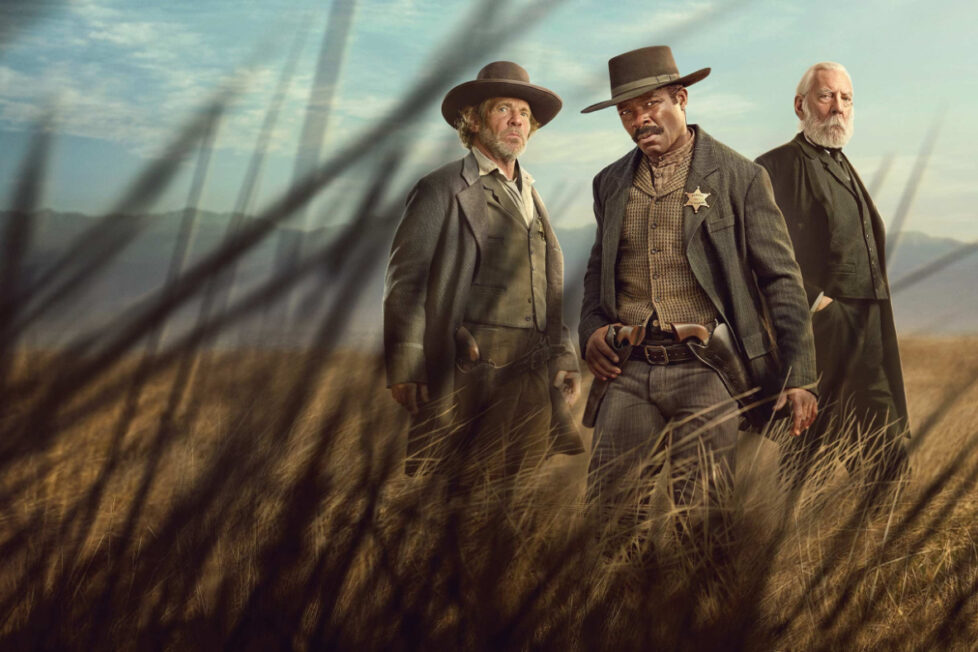
The story of legendary lawman Bass Reeves, one of the greatest frontier heroes and one of the first Black Deputy US Marshals west of the Mississippi River.


“All the Westerns have been made,” the great actor Robert Ryan once said, while discussing Sam Peckinpah’s The Wild Bunch (1969). “The only difference is style.” His remark in part points to the rapid fade of the Western movie that started in the late-1960s. This near extinction was caused by many factors, among them modern American culture’s obsession with the new and shiny. This point of view sees Westerns as “old stuff” to be forgotten in museum attics. For modern, supposedly superior, sensibilities, the genre has no new stories to tell, nothing new to say.
Ryan was almost right, but not quite. As this fan is glad to say, not all the Westerns have been made. There are new stories out there to tell and, occasionally, interest in the genre rises to tell them, as is happening right now. One of those responsible for this current revival is writer-producer-director Taylor Sheridan, who, in addition to directing such fine modern westerns such as Hell or Highwater (2016) and Wind River (2017), also produced the hit TV series Yellowstone and its prequels, 1883 and 1923. Along with drama, action, and great outdoor scenery, all these shows provide a fresh perspective on rural America, a landscape neglected by film producers.
Though he seems to have had little direct input, Sheridan’s hand shows as executive producer in the new TV series The Lawmen: Bass Reeves. Now streaming on Paramount+ with Chad Feehan as creator and co-writer, Bass Reeves departs from the Yellowstone universe for a true story that seldom gets told: the action-packed, heroic exploits of the title character, an African American US Deputy Marshal who served in what was then called “Indian Territory” (now the State of Oklahoma) from 1875 to 1907.
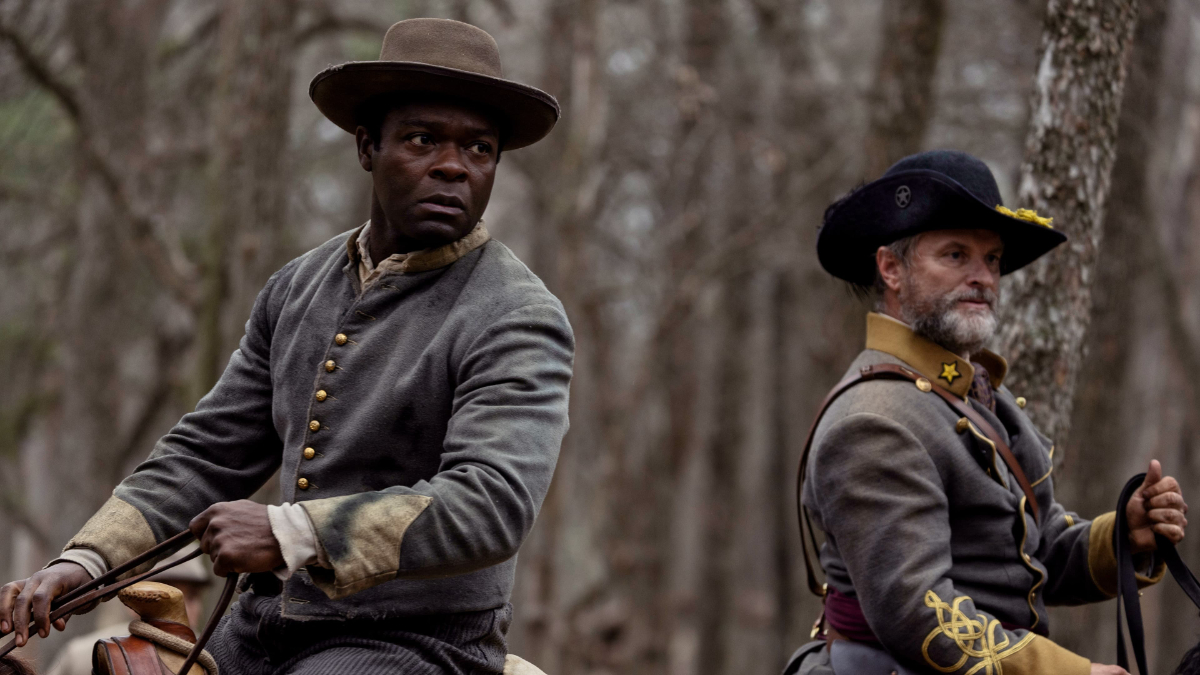
Bass Reeves served mostly under the jurisdiction of Federal Judge Isaac Parker (remembered as “the Hanging Judge” due to his enthusiasm for capital punishment). He was a remarkable man, courageous and bold. In his 32-year career, he arrested thousands of outlaws, killing 14, all without ever getting a scratch. His sense of honor was so strong, that he even brought in his own son for murder. (He was once alleged to be a model for The Lone Ranger, a doubtful proposition as Reeves never served with The Texas Rangers who would never have allowed a Black man into their ranks at the time; nor did Reeves wear a mask during his exploits.)
The Lawmen: Bass Reeves opens with Reeves’ backstory. It’s 1862, early in the Civil War. Bass Reeves (David Oyelowo) is a slave and battlefield factotum to Confederate Texas General George Reeves (Shea Whigham), a sadist who prefers psychological torture to the physical kind, as he forces Bass to join him on the frontlines of battle under threat of death. Reeves proves himself a crack shot. This skill comes in useful when he later escapes the plantation after beating Reeves unconscious for cheating at cards, leaving behind his pregnant wife, Jennie (Lauren E. Banks).
Bass hides out from both slavery and the Civil War in Indian Territory with Nita (Crystle Lightning), a Seminole widow. He spends several years in contented seclusion until his encounter with another Confederate soldier, Esau (Barry Pepper), leads to the death of Nita’s little boy. This first episode ends when Bass, freed from bondage at war’s end, tracks down Jennie and his daughter, Sally, to Fort Smith, Arkansas. Together, the family sets out to become farmers.
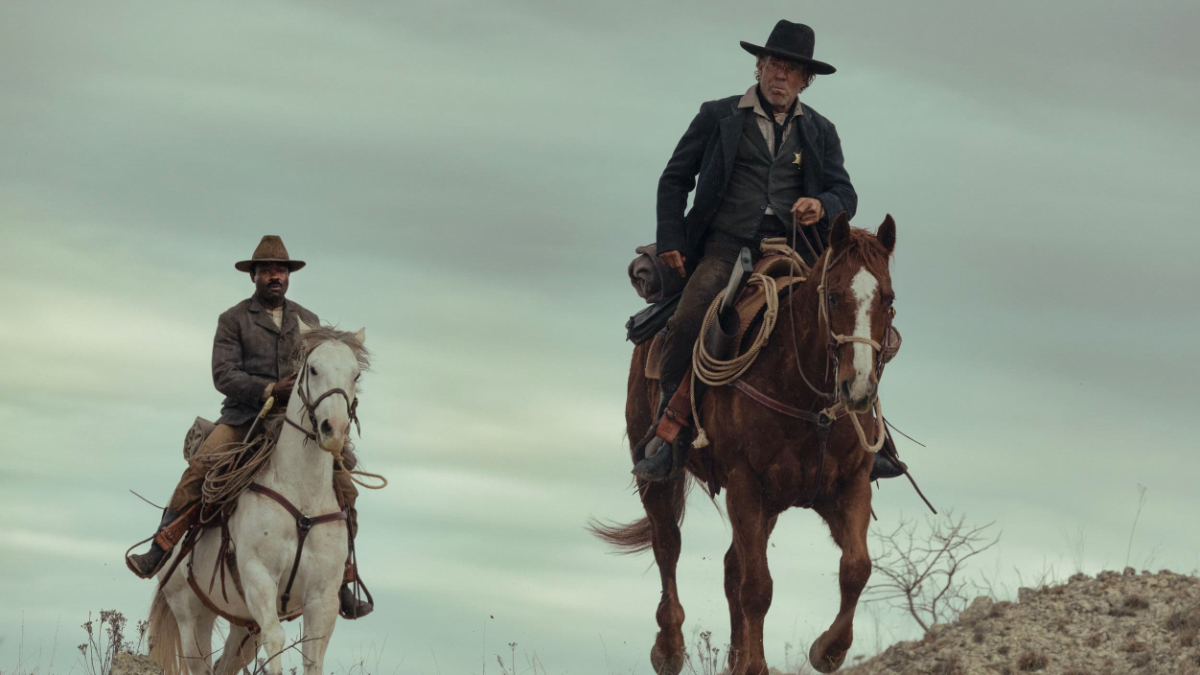
The second episode skips ahead to 1875 with the Reeves family, now grown to six and on the edge of hunger. Lucky for them, US Deputy Marshal Sherill Lynn (Dennis Quaid) stops by one day with a job offer for Bass: He needs a “posse man,” a sidekick to help him track down an outlaw in Indian Territory. Bass’s knowledge and experience with the ways and languages of that lawless land make him an ideal hire.
It’s here that Bass Reeves finally saddles up and rides out for seven episodes of gripping drama and high-stakes adventure. Reeves quickly takes to the job with righteous determination and rises to the rank of Deputy US Marshal while becoming the lawman of choice for Judge Parker (Donald Sutherland). Each episode alternates between action-packed manhunts and quieter domestic moments that portray Jennie’s double burdens as a lawman’s wife and a Black woman struggling to maintain her family in a world where the Basses are second-class citizens living under the shadow of racism.
Plotwise, Reeves’ cat-and-mouse exploits aren’t much different from those seen in the great old TV series Gunsmoke. That means Bass Reeves must succeed where it counts: in the execution. Each episode is well-written, excellently directed, and sharply edited. The sharp-edged monochrome cinematography, by co-director Christina Alexandra Voros, captures the Old West’s beauty but also reminds us that it was a hard place to scratch out a living.
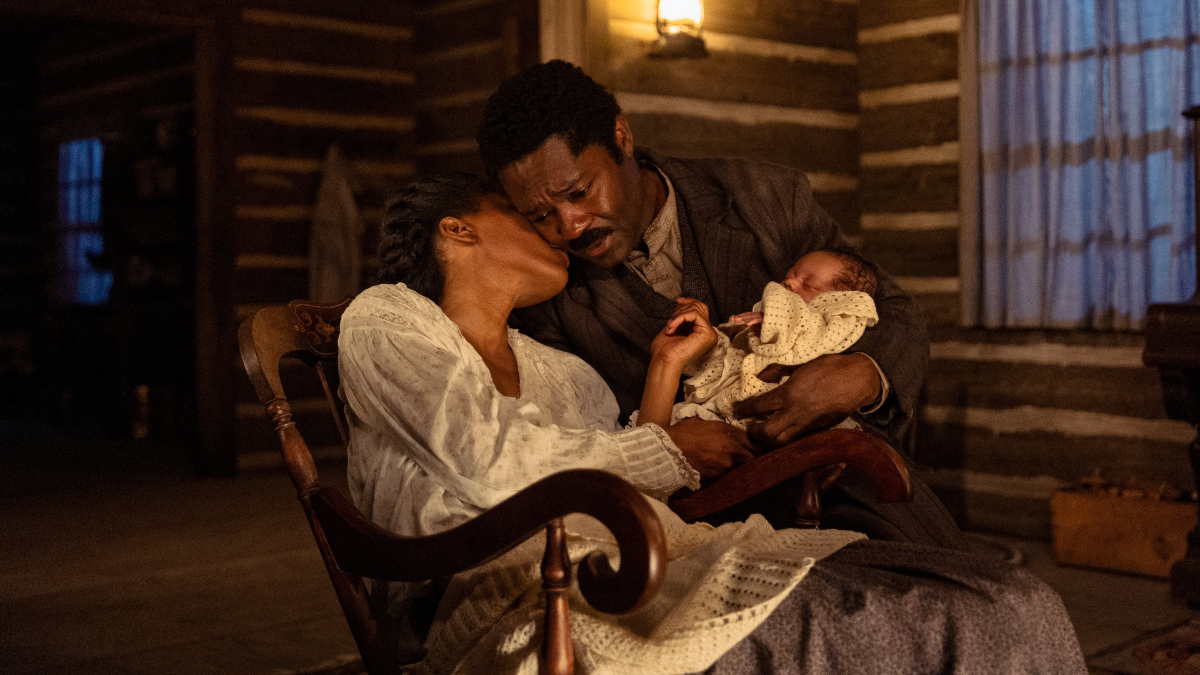
Where most outdoor productions are now filmed in Canada, this one was filmed in rural Texas, not too far from where the real Bass Reeves rode, giving the landscapes an additional authenticity. There’s plenty of gritty detail on display, further intensifying the realism, along with the superbly staged shootouts. On the downside, the soundtrack is lacking in verve and colour. Chanda Dancy’s solemn score gives too many scenes the air of a long funeral. The score also uses little source music from the period.
With eight writers involved across the season, the storytelling occasionally becomes diffuse, with some storylines scattering into the wind. Among these are the threats faced by the Reeves family from a local racist gang, a hole that will perhaps be filled in the event of a second season. (The title hints that other “lawmen” stories might be told.)
The best episodes show Bass Reeves wrestling with the foggy line between lawman and outlaw. (Many Old West lawmen started their lives outside the law, and some even regressed to banditry.) Other episodes dramatize the dilemmas faced by a Black man who’s been given a badge to enforce laws that privilege whites. Sometimes, Bass finds himself sending his own people off to the hangman. In one disturbing moment, he inadvertently delivers a Black fugitive into the hands of a Confederate Texan madman bent on reviving the South with his antebellum fantasy plantation. Be assured that’s one mistake Bass Reeves won’t let stand.
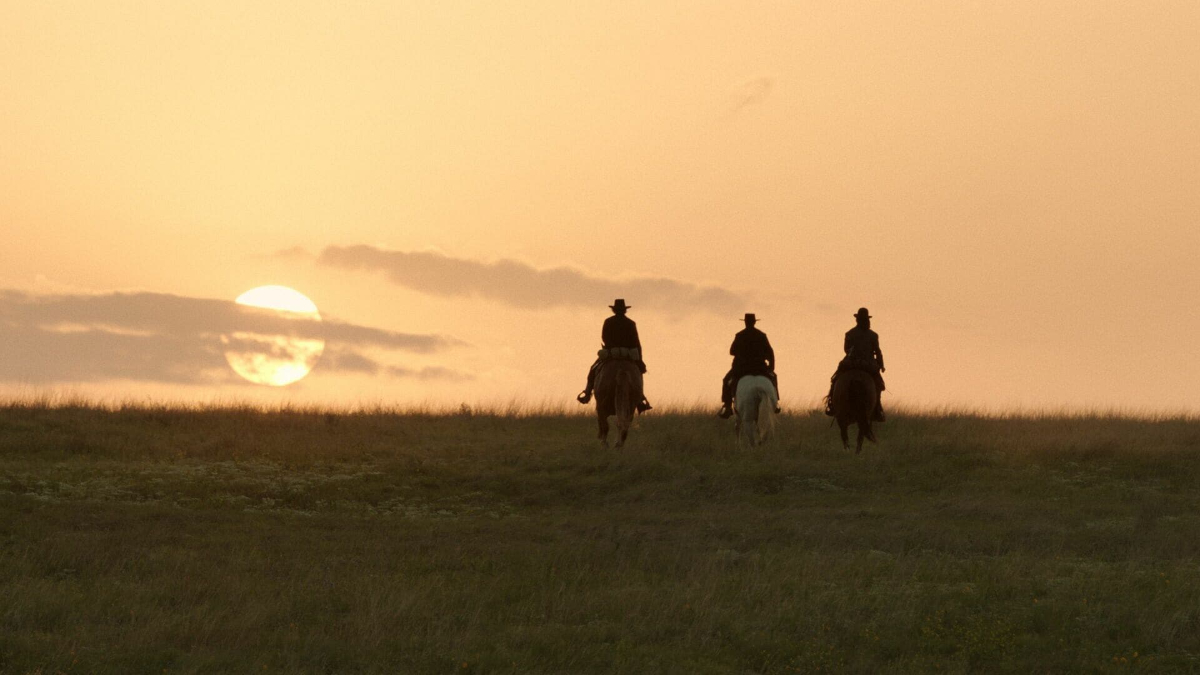
David Oyelowo is excellent as Bass Reeves, conveying his righteous smouldering passion for his job and his frustration when his principles clash with his responsibility to his community. He’s further supported by Lauren E. Banks, who plays Sallie with the right mixture of winsomeness, firmness, and an equal determination to do what’s right.
For veteran Western fans, it’s often the supporting cast that provides much of the pleasures, villains and sidekicks alike. Bass Reeves delivers here as well, capturing the spirit of Westerns past with a cast of grungy colorful performers. Among them are Barry Pepper, Dennis Quaid, Shea Whigham (whom I’ll watch in just about anything), and Forrest Goodluck, a standout in How to Blow a Pipeline (2022). Donald Sutherland as Judge Parker hovers over the proceedings with the crusty, yet ominous, dignity of the righteous executioner. The show does a good job of putting us inside the often brutal and antique sensibilities of its time in a way that reflects our own concerns and reminds us how the past reaches into the present in one way or another. The West isn’t such ancient history after all.
USA | 2023 | 8 EPISODES | COLOUR | ENGLISH

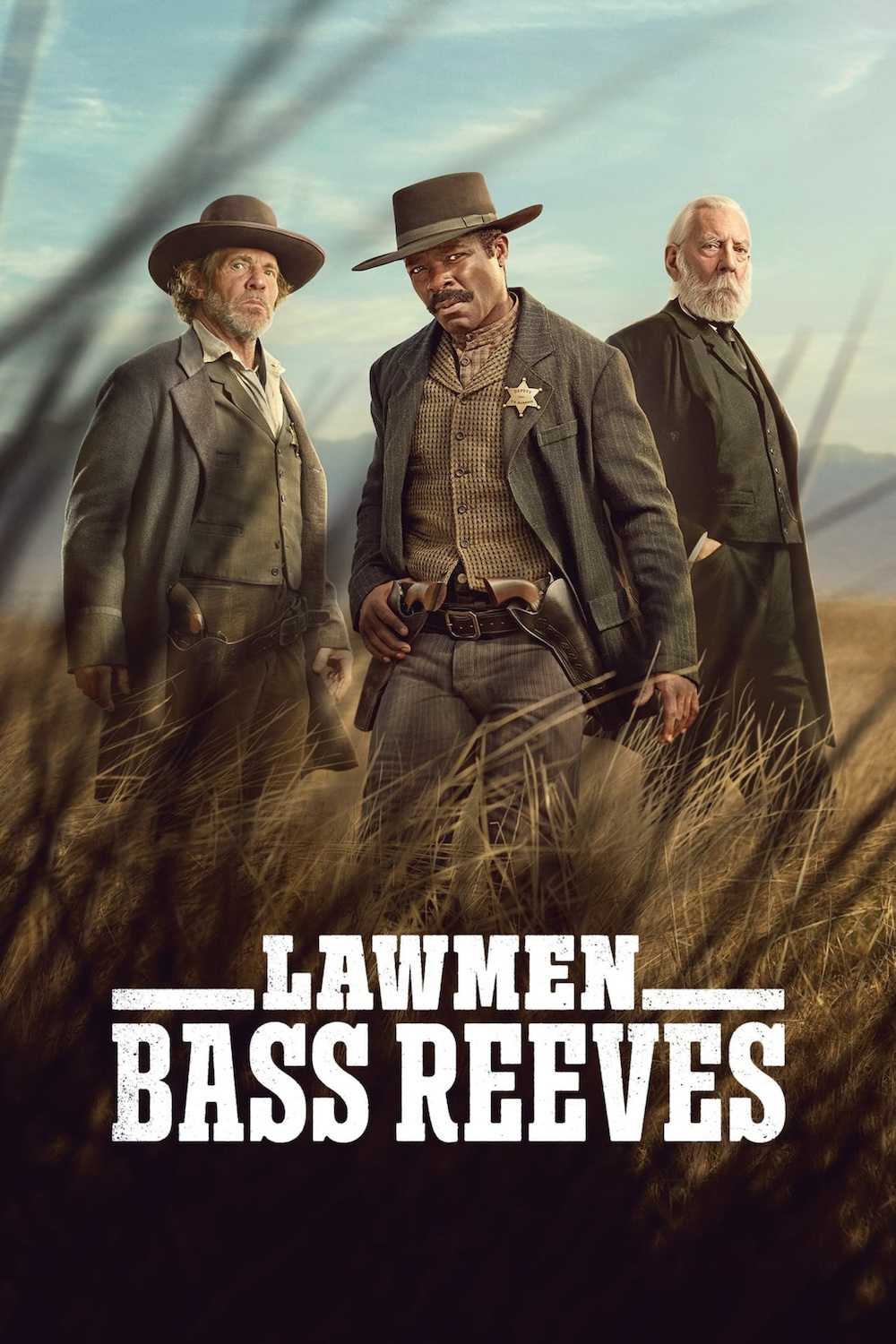
writers: Chad Feehan, Jewel Coronel, Jacob Forman, Ning Zhou, J. Todd Scott, Terence Anthony & K.C Scott (based on ‘Follow the Angels, Follow the Doves: The Bass Reeves Trilogy, Book One’ and ‘Hell on the Border: The Bass Reeves Trilogy, Book Two’ by Sidney Thompson)
directors: Christina Alexandra Voros & Damian Marcano.
starring: David Oyelowo, Lauren E. Banks, Demi Singleton, Forrest Goodluck, Barry Pepper, Dennis Quaid, Grantham Coleman & Donald Sutherland.
